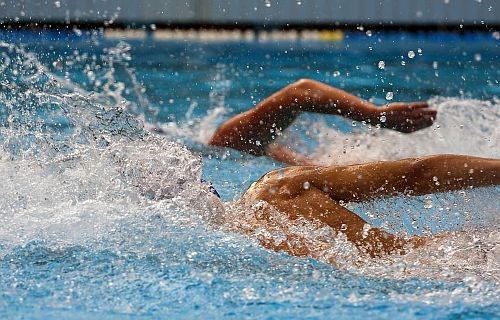Comment
Sport should commit to international standards for child protection

Photo: Colourbox
11.10.2019
This sunday, the world’s premier gathering on sports governance, transparency and accountability, known as ‘Play the Game’, will kick off in Colorado Springs, the backyard of the United States Olympic and Paralympic Committee (USOPC). Protection of young athletes is a main theme of the programme, and there is no better place to examine this topic than at the centre of widely reported sexual abuse scandals in USA Gymnastics, USA Swimming, USA Taekwondo and the ongoing institutional coverup at the highest levels of the USOPC.
One debate for the more than 300 conference participants is whether U.S. lawmakers and sport governing bodies understand how much the ground has moved on public support for how sport is currently run and by whom. The first major shift was the more than 150 courageous female gymnasts testifying to the decades of sexual abuse and assault they experienced at the hands of USA Gymnastics team doctor and Michigan State University employee Larry Nassar.
The latest shift was the news last month of the U.S. Department of Justice and Internal Revenue Service launching wide-scale criminal investigations into the systemic sex abuse cases and accounting practices of the USOPC and other national sport governing bodies.
Has this been the wake-up call for those in power to take action to put athletes’ wellbeing and interests above profits, medals and records, or merely viewed as the latest crisis that needs to be managed away for the sake of sport’s reputation?
Some look with hope to the proposed legislation introduced in the U.S. Congress in July titled the “Empowering Olympic and Amateur Athletes Act of 2019.” This bill is an overhaul of the 1978 Ted Stevens Amateur Sports Act that had major oversights on athlete welfare and lacked sanctions for sports governing bodies’ failures to protect athletes, which allowed the sex crimes by Nassar and other serial abusers to go unchecked for as long as they did.
Congress doesn’t go far enough
But the new bill doesn’t go far enough on keeping sexual predators out of sport nor on basic child rights. If Congress is serious about making sport safe for its youngest participants, the law should embed exiting global guidelines and standards that have been tailored for protecting the rights of child athletes and mandating that sports bodies do their part, beginning with the International Safeguards for Children in Sport and the World Players Declaration on Safeguarding the Rights of Child Athletes.
Both of these documents are based on the UN Convention on the Rights of the Child (CRC), a global human rights treaty for child protection, well-being, inclusion and best interests. Had the U.S. government already ratified this treaty and the private enterprises that Congress certifies to govern sport at the national level been held accountable to these minimum standards of child rights, it is undeniable that the thousands of athletes who have survived child sexual abuse in elite sport in the U.S. would have been better protected.
More organisations would be responsible for conducting independent evaluations on child rights in the country, more hotlines to report abuse would be available, and more agencies, social services, and community programs would work together holistically to safeguard child athletes through an integrated protection system.
Of course, protective factors in the bill must also include athletes above the age of 18. Congress must require that athletes collectively have an equal say with sports administrators in matters that affect them—including age-appropriate participation of child athletes—through 50% decision-making power, with equal access to information, a dedicated funding stream, and the freedom to appoint whomever they wish to represent them.
There are of course limits to what a national law in the U.S. can accomplish when the governance and cultural problems that have created this systemic abuse of power are in fact controlled at the global level.
IOC should commit to child rights
Congress should make sure that the “Empowering Olympic and Amateur Athletes Act of 2019” does not cede authority on the safety and rights of its child athletes to global powers like the International Olympic Committee (IOC) unless the IOC and others are committed to respecting child rights as defined by international standards, which global sports bodies such as the Commonwealth Games Federation, FIFA [the global football federation], and the International Netball Federation have done.
The IOC must guarantee that National Olympic Committees (NOCs) will not be hindered from working with existing national and local systems that are in place to protect children.
Another limitation is the reality of what is needed to turn federal law into real change for real people. Without enforcement and sufficient resources on the ground, the local actors who are key to making the new measures reality won’t take them seriously and will remain ill-equipped to make a difference. The law must put in place the structures and staffing needed to train, follow up, sanction and remediate when the new requirements are not followed, and of course support those who have been harmed.
As the limitations above show, no one actor can solve this problem alone. Yet, Congress must not wait for another sexual abuse scandal of USA Gymnastics proportions before it does its part to keep child athletes safe. The ground has already moved further than the current proposed legislation acknowledges.





